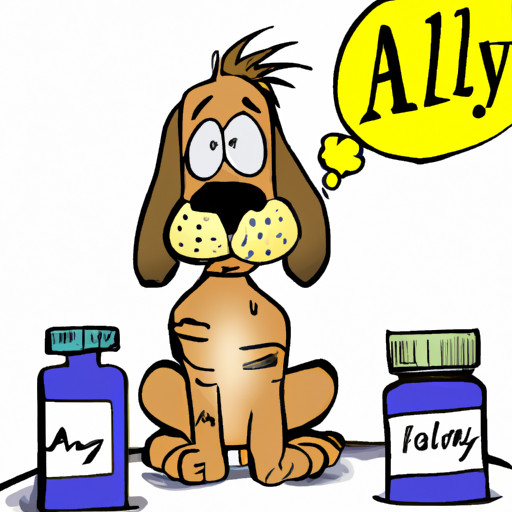“`markdown
What is the Best Allergy Medicine for Dogs?
As a compassionate caregiver, you know your furry friend’s health is of utmost importance. Let’s delve into the world of canine allergies and explore the best allergy medicine for your loyal companion.
Understanding Canine Allergies
Just like humans, our four-legged friends also suffer from allergies. The causes could range from certain foods, dust mites, pollen, to even certain fabrics. Identifying the cause can often be a battle of trial and error.
- Food Allergies: These are often caused by proteins in beef, chicken, eggs, corn, wheat, soy, and milk.
- Environmental Allergies: Dust mites, pollen, and mold can all trigger allergic reactions.
- Contact Allergies: Some dogs may have reactions to certain types of fabrics, plastics, or other materials.
Assessing Allergy Symptoms in Dogs
The first step to treating allergies is recognizing the symptoms. Keep an eye out for the following signs:
- Excessive itching and scratching
- Red, inflamed skin
- Chronic ear infections
- Gastrointestinal problems like vomiting and diarrhea
Choosing the Right Allergy Medicine
| Allergy Medicines | Pros | Cons |
|---|---|---|
| Antihistamines (Benadryl, Claritin) | Non-prescriptive, relatively safe, and affordable | May cause drowsiness, not always effective |
| Corticosteroids (Prednisone) | Highly effective in relieving severe symptoms | Long-term use can lead to side effects like increased urination, thirst, and potential liver damage |
| Cyclosporine (Atopica) | Effective for long-term control of symptoms | Can cause gastrointestinal problems, expensive |
Holistic Approaches to Allergy Treatment
In addition to medication, there are several natural remedies and lifestyle changes that can help manage your dog’s allergies.
- Dietary Changes: Some dogs may benefit from a diet change. This could mean switching to a grain-free or single-protein dog food.
- Supplements: Fish oil, probiotics, and certain herbs may help to manage symptoms.
- Acupuncture: This ancient practice can help to strengthen your dog’s immune system and reduce symptoms.
Frequently Asked Questions
Q: Can I give my dog human allergy medicine?
A: Yes, but only certain types and under the guidance of a vet. Overdosing can be harmful.
Q: How can I prevent allergies in my dog?
A: Regular grooming, dietary control, and reducing exposure to known allergens can help.
Q: Are allergies in dogs curable?
A: No, but they can be managed with the right treatment.
Remember, every dog is unique, and what works for one may not work for another. It’s always best to consult a vet before making any changes to your dog’s health regime. Together, you can ensure your furry friend is happy, healthy, and allergy-free.
“`



